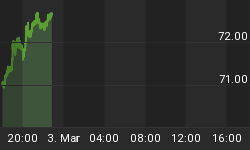It has been long understood that our federal government is going deeper into debt, consistently raising the debt ceiling and demonstrating no fiscal restraint. In recent years, debt ceiling increases have been placed in "must pass" legislation as a means to guarantee that Republicans as well as Democrats would vote for them when Congress was under Republican control.
We also know our nation's "negative savings rate" reflects the habits of private citizens, showing those habits to be not tremendously different than the habits of the public sector. Yet, the signs of decline are becoming ever more apparent. So apparent, in fact, that it seems unlikely that bailouts or other gimmicks will have even short term success. More inflation, and creating moral hazard by bailing out egregious offenders, is a recipe for disaster. These activities can seem to provide some short term relief, but it seems we are now at a significant crisis point, where monetary policy gimmicks don't provide the band-aids they did in the past.
Not only is our nation on the verge of bankruptcy, but so are its people and private institutions. We are now repeatedly hearing about businesses "needing to access the credit market to make payroll." This is an unmistakable sign of more dire consequences ahead for the economy. If businesses must borrow just to make payroll, this is evidence of a severe undercapitalization that cannot be sustained, even for the short run.
Couple these facts with items such as the explosion of the "pay day loan" industry and the unmasking of the false sense of economic well-being is nearly complete. These pay day loan companies use preferred access to easy credit to inject cash into the hands of the working poor. They are nearly always set up in lower-income neighborhoods. These people, who are struggling to buy food and pay rent, get addicted to the credit drug. Their standard of living is only further depressed by the interest payments on these loans that make them profitable to their providers. Thus, the recipients are left even less capable of paying for items such as food and housing in the long run, without using this credit again and again.
These people are often the very ones being paid by businesses who "borrow to make payroll." This is the dark underbelly of the fiat money, borrow and spend economy this nation has been building. As the government takes over more and more functions of the economy many see the rise of socialism as an antidote to this failure of "capitalism". However, the fact remains that our economy has been increasingly running on debt, not capital. Capitalism does not exist without capital and debt is not, has never been and will never be a form of capital. Only now are we seeing the more dire implications of an economy without capital.
















